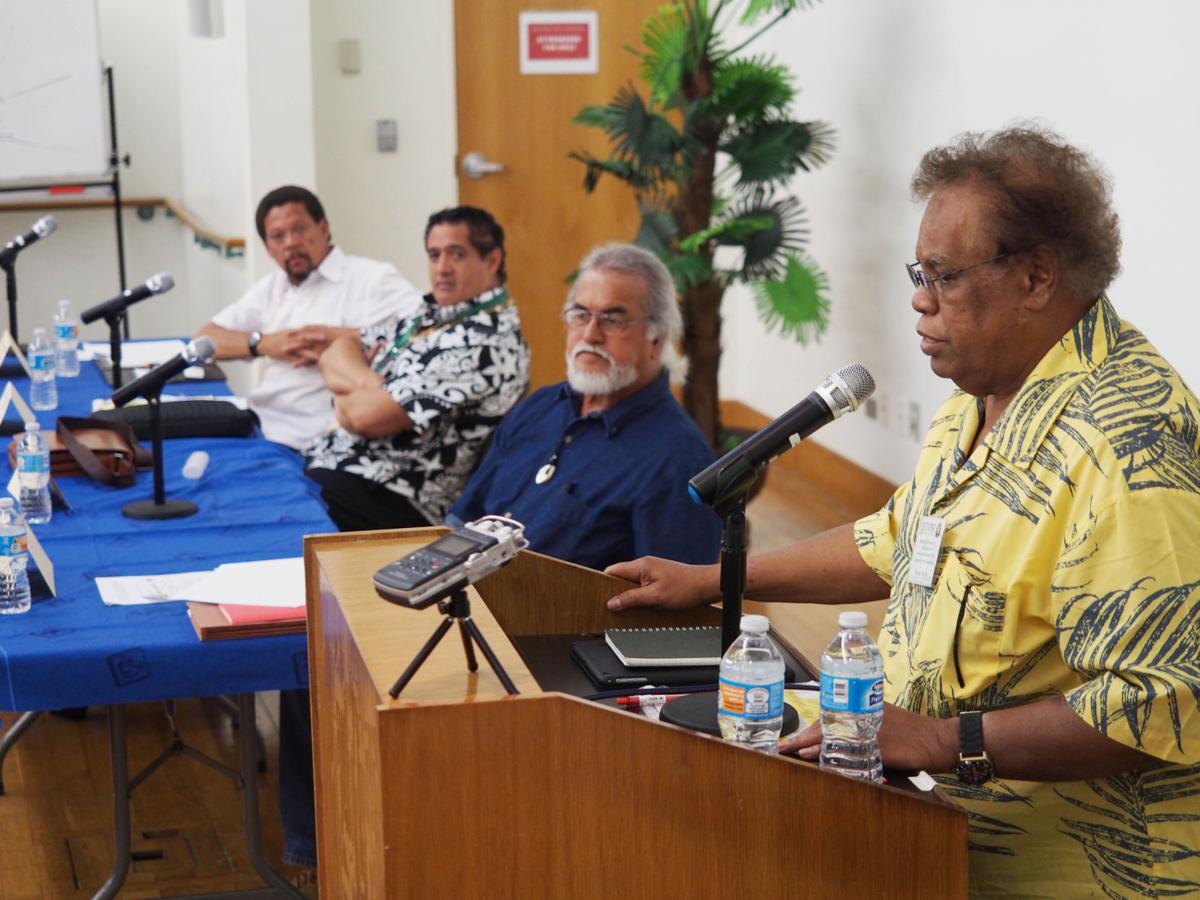Statement to the United Nations
Special Committee on Decolonisation
Dr. Carlyle G. Corbin
Senior Fellow
Dependency Studies Project
24th June 2016
(CHECK AGAINST DELIVERY)
Mr. Chairman, distinguished members of the Special Committee,
I wish to thank you for the opportunity to address the Committee on the agenda item of the “Question of French Polynesia,” the most recent territory added to the United Nations list of non self-governing territories.
In establishing the substantive basis for the re-inscription, a Self- Governance Assessment of French Polynesia was undertaken to ascertain the level of self-government according to recognised international standards. In this regard, the diagnostic tool of Self-Governance Indicators (SGIs) was utilised to determine the nature of the political status relationship between the territory and the administering Power.
The SGIs are derived from the minimum standards of self-government as contained in international instruments including the U.N. Charter, General Assembly and ECOSOC resolutions, and human rights conventions including the International Covenant on Civil and Political Rights (ICCPR); the International Covenant on Economic, Social and Cultural Rights (ICESCR); the Convention on the Elimination of All forms of Racial Discrimination (CERD) among other relevant conventions. This is consistent with General Assembly resolutions which recognise self-determination as an inalienable human right. Relevant opinions of the International Court of Justice and the U.N. Legal Office are among the definitive sources utilised.
The SGIs were formulated with specific reference to small island non-independent countries and territories, and are used to identify the nature of the political relationship between a cosmopole and a non-independent country. The SGIs are specifically tailored for three sub-categories of:
1) Non-self-governing territories,
2) Those territories which are characterised - or mis-characterised - as autonomous forms of governance (as was the case with French Polynesia prior to its re-inscription in 2013)
3) The third category contains the territories which have been integrated with full political rights in the cosmopole, and sometimes with only partial political rights in the cosmopole.
Examples of these three categories can be found in the Pacific and Caribbean regions. Self-governance Assessments have proven useful to the territories themselves in the absence of the “periodic analyses...of the implementation of the (Decolonisation) Declaration" that were to have been completed for each territory as a mandate of the General Assembly in the plans of action of the International Decades for the Eradication of Colonialism. such analyses have never been undertaken even as they were to have been important substantive outputs of the first, second and current third IDECs.
With specific reference to the Assessment of Self-Governance Sufficiency of French Polynesia, three dimensions were analysed:
In the constitutional and political dimension,
* The right to self-determination
* Unilateral applicability of constitutional provisions and laws of the administering power
* The freedom to draft or modify an internal constitution control of the electoral system
* Judicial procedures were all explored.
In the economic and social dimension,
* The nature and extent of the economic relationship between the territory and the administering power
* The level of authority of the territory to autonomously engage in regional economic affairs
* The highly important ownership, control and permanent sovereignty of the natural resources by the people of the territory
* Jurisdiction over cultural preservation matters including the use of indigenous languages
In the military and strategic dimension,
* the utilisation of the territory for military activities with specific reference to longstanding General Assembly resolutions which addressed the question of whether the establishment of such installations might impede the implementation of the Decolonisation Declaration
In essence, the SGIs measure the power relationship - the power or imbalance of power that an administering power maintains over the territory, its people and its resources. In this connection, the SGIs assess the level of unilateral authority of an administering power to legislate for the territory, without their consent and against their will."
_____________________________
The Assessment of French Polynesia concluded the following:
- The term autonomy is mis-applied to the current French Polynesia dependency model which is indicative of a dependency governance arrangement which had been modernised over time, in form and nomenclature, but not in substance.
- The Assessment found that there remained a significance political
imbalance and high degree of unilateral authority exercised by the
administering Power in the political, socio-economic and the strategic dimensions, among other areas.
- The Assessment identified significant democratic deficiencies in this particular dependency governance model.
- The Assessment ultimately determined that French Polynesia “did
not meet the recognised international standards for the full measure of self-government through autonomous governance.”
*****
Accordingly, the Self-Governance Assessment for French Polynesia provided the substantive analytical basis for the adoption by the General Assembly of Resolution 67/265 re-inscribing the territory on the U.N. list of non self-governing territories, and further confirms the applicability of international law to French Polynesia's decolonisation pursuant to General Assembly Resolutions 68/93, 69/103, and 70/100.
It is reported publicly that a new proposal, in the form of an "accord," is being formulated by the administering Power for application to the territory. The Special Committee should examine closely whether such an "accord" corrects the imbalance of power in the present political relationship, or whether it is a form of colonial modernisation, rather than genuine decolonisation, with little or no effect on the non self-governing nature of the political status of French Polynesia.
For our part, the Dependency Studies Project is prepared to conduct the standard Assessment on this "accord" when it is publically revealed to ascertain self-governance sufficiency through the use of the Self-Governance Indicators, and would be pleased to share the findings with member States of this Committee through the proper modality.
Thank you, Mr. Chairman.





